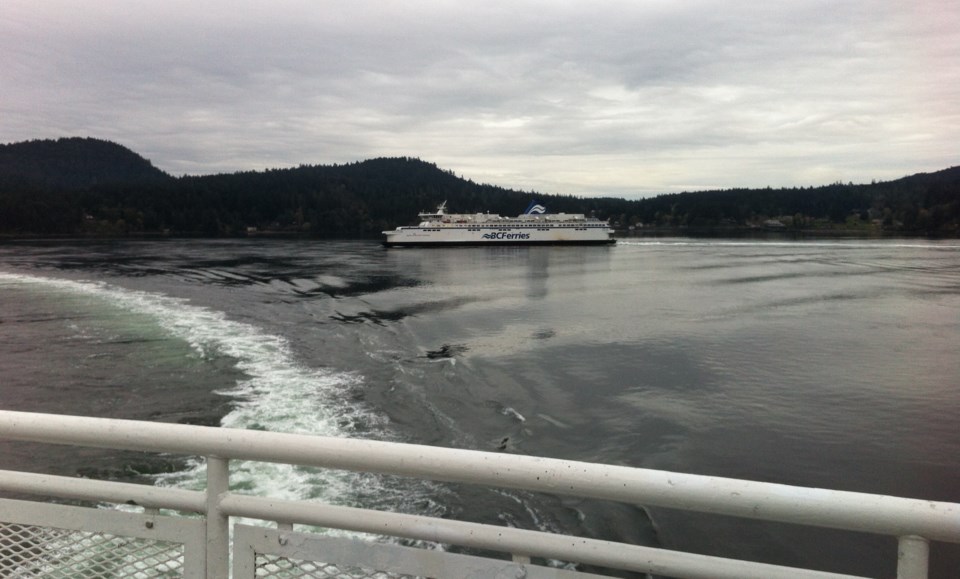B.C. Ferries says it plans to ban smoking on all vessels and not allow passengers to remain in vehicles on lower fully-enclosed decks while vessels are underway.
Spokeswoman Deborah Marshall said B.C. Ferries is reviewing its smoking policy “with an eye to offer a smoke free environment in the future.”
“With regards to car decks, we are working to fully implement Transport Canada regulations limiting passenger access to closed car decks while ships are underway.” Closed decks are the lower vehicle decks on the larger ferries. Transport trucks and buses are parked on the lower deck; cars are also parked there when the upper deck fills up.
“Customers will continue to be permitted to stay in vehicles on the upper (open) car decks,” Marshall said. “We will make a formal announcement in early January.”
The Coho ferry, between Victoria and Port Angeles, has not permitted passengers on car decks for about 15 years. “For your safety, access to the car deck is prohibited while underway,” a Coho notice says. There was some resistance to the restriction, but passengers mostly got used to it, said Ryan Burles, chief executive of Black Ball Ferry Line, which operates the Coho.
Car decks were closed as a result of international regulations imposed after the sinking of MS Estonia in 1994 in the Baltic Sea. Its bow doors opened in rough weather, allowing water to rush in. About 850 people died.



